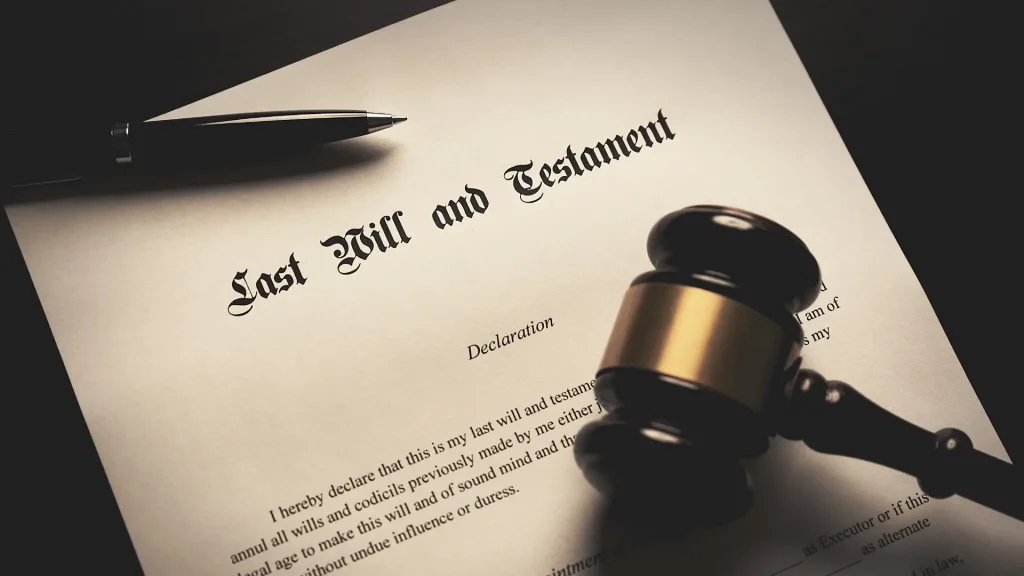
When a loved one passes away, things can get emotional. This is particularly true when something about their will doesn’t feel right. Maybe you were unexpectedly left out, or suspect someone pressured them to change things. If so, you can contest the will, which means you formally assert that elements of it are not legally valid. However, you do not have unlimited time to do so.
Understanding Will Contests in Texas
Contesting a will means legally challenging it. People usually file these challenges when they believe the will doesn’t reflect the true wishes of the deceased person. Maybe it was forged. Perhaps the person wasn’t in the right state of mind. Or maybe someone used pressure or lies to change their decisions.
In Texas, will contests are heard by the probate courts, which handle everything related to someone’s estate after death. Specific probate deadlines must be followed, and knowing them is key to taking action.
How Long Do You Have to Contest a Will in Texas?
The contest time limit in Texas is usually two years from when the will is admitted to probate. This means the clock starts ticking once the court officially accepts the will. If you miss this window, you might lose your chance to raise objections. However, there are exceptions to the statute of limitations for contesting. For example:
- If you discover the will was forged or faked
- If fraud was involved (like someone tricking your loved one into signing it)
- If the person who signed it didn’t understand what they were doing
- If it wasn’t signed according to Texas law
These situations might extend the challenge to the timeline, but even then, the window is tight.
Grounds for Contesting a Will in Texas
Not everyone can contest a will. You need a valid legal reason to do so. Some of the most common include lack of testamentary capacity, meaning the person didn’t fully understand what they were signing due to illness, confusion, or age. Another valid reason for contesting a will may be undue influence. If you feel someone pressured your loved one or manipulated them to change their will, you can contest it.
Improper execution is another reason that you may want to contest the will. According to Texas law, this applies if the will wasn’t signed or witnessed. Fraud or forgery are valid reasons to contest, especially if you believe the will contains false information or a forged signature.
How to Contest a Will Within the Time Limit
If you think something is wrong, act fast. The probate objection deadline is strict. Here’s what to do:
- Gather documents, such as a copy of the will, medical records, and anything that supports your claim.
- File a formal objection in the probate court handling the estate.
- Work with a probate litigation attorney who understands the process.
Your lawyer will help you understand the legal time limit for contesting estate issues and build a strong case before the filing deadline passes.
What Happens If You Miss the Deadline?
If you don’t take action before the state-specific will contest periods expire, your case may be dismissed, even if you have valid concerns. In rare cases, like clear proof of fraud, the court might still hear your case, but that’s not guaranteed. Missing the inheritance dispute time frame could mean you lose any right to what you’re entitled to. That’s why it’s crucial to act quickly.
Why Legal Guidance Is Crucial in Will Contests
 The probate court deadlines are just one part of the puzzle. Probate litigation can be emotionally draining and legally complicated. You’re not just dealing with paperwork. You’re dealing with family dynamics, money, and grief all at once.
The probate court deadlines are just one part of the puzzle. Probate litigation can be emotionally draining and legally complicated. You’re not just dealing with paperwork. You’re dealing with family dynamics, money, and grief all at once.
An attorney can help you during this difficult time. They can explain your rights, file your claims within the deadline, and fight for what’s fair. They can also help uncover key evidence and communicate with the court. Legal support makes a real difference when you’re facing a post-death will challenge rule.
Common Mistakes to Avoid When Contesting a Will
There are several mistakes you can make that will negatively impact your rights.
- Waiting Too Long – Even if you are still grieving, the clock doesn’t stop ticking.
- Not Having Enough Evidence – Claims without proof won’t hold up in court.
- Trying To Do It Yourself – Probate law in Texas is detailed, and mistakes can cost you your case.
- Misunderstanding the Rules – A major pitfall is assuming all states handle probate the same. Texas has its own laws, and they’re not always easy to understand.
Contact Our Dallas Contested Will Attorney Today
If you have questions about a will in Texas or believe something is off, call Staubus, Blankenship, Legere and Walker PLLC at (214) 833-0100. Our team is here to help you understand your rights and take the first step toward securing the necessary benefits. Our Dallas contested will attorney can explain your options, answer your questions, and help you take action before time runs out.
Related Post
Common Misconceptions About Probate
Estate Plan vs Will: What’s the Difference?






